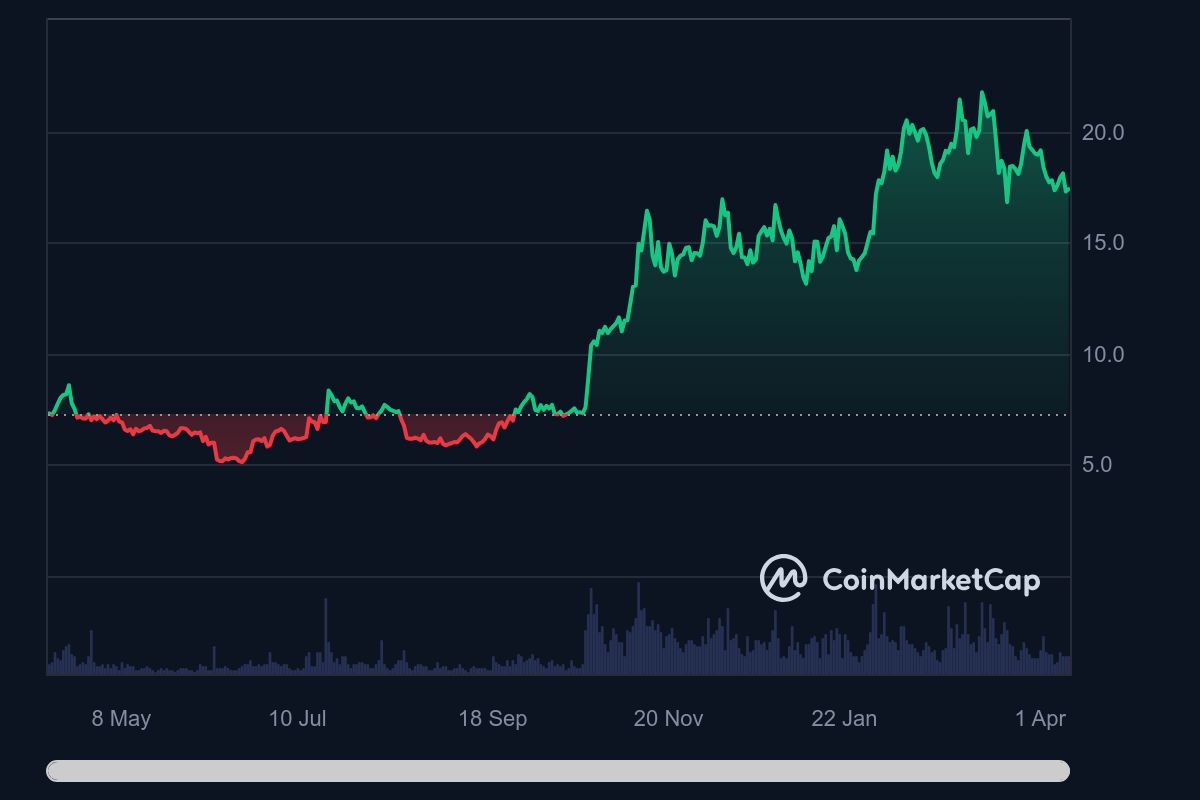- The monthly fee revenue for CCIP jumped 4x last month.
- LINK slumped by 20% in the last month.
After staying stagnant for much of 2023, Chainlink’s [LINK] Cross-Chain Interoperability Protocol (CCIP) has witnessed an exponential rise in network usage and fee revenue in 2024.
CCIP sees increased demand in bull market
The monthly fee revenue skyrocketed to $258,170 in March, marking a 4x jump from February, AMBCrypto noted using a Dune Analytics dashboard. The total fees collected in April already topped $52,000 as of this writing, which was more than the monthly revenue in January.
The total number of requests made on the protocol also lifted sharply in recent months, underlining its growing adoption in the Web3 space.
For the curious, CCIP is a global standard used for sending and receiving data and tokens across blockchains. Think of it as a bridge connecting different networks seamlessly.
The growth trajectory remained linear in 2023, likely due to bearish market conditions. But with activity picking up in the ongoing bull market, Chainlink’s flagship offering was finding many takers.
Why has LINK gone the other way?
Higher adoption of CCIP, however, failed to impact the ecosystem’s native token, LINK. The cryptocurrency with a market valuation exceeding $10 billion slumped nearly 20% in the last month, according to CoinMarketCap.
Well, the logical explanation for this could be that fees on CCIP don’t accrue value to the token holders, rather they are entirely collected by node operators.
That being said, LINK did rise 16% when CCIP was launched on mainnet in July last year, AMBCrypto’s examination of historical data revealed.
However, during Q4 2023, when activity on CCIP contracted significantly, Chainlink almost doubled in value. This represented a degree of negative correlation.


Source: CoinMarketCap
Realistic or not, here’s LINK’s market cap in BTC’s terms
When compared with the broader market, LINK can be safely called a laggard, as most other popular coins reported gains in the last month.
LINK’s trading volumes have also remained on the lower side, indicating dipping interest for the asset.


